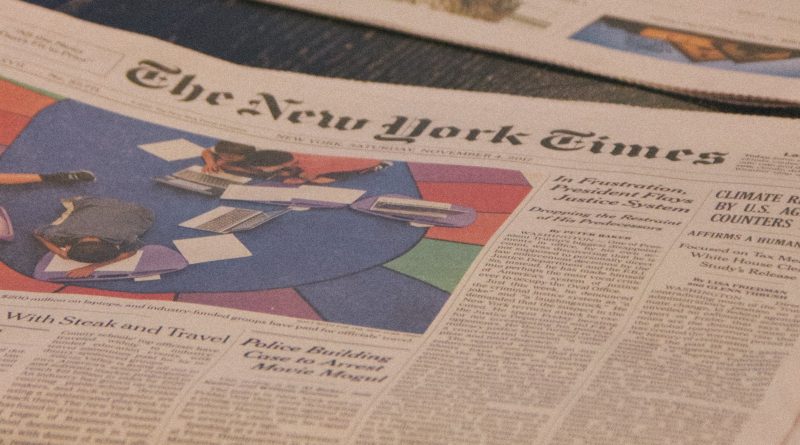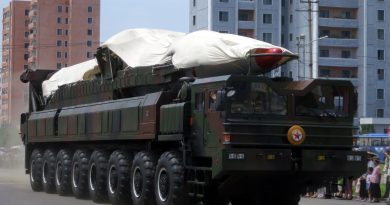Australian and American Journalists Expelled out of China in Diplomatic Standoff
Jasmine R. Deleon
Staff Writer
In early September, Bill Birtles, an Australian foreign correspondent for the Australian Broadcasting Corporation and China correspondent for ABC, was advised by Australian officials to leave China after the arrest and detention of another foreign journalist, reports The Guardian. Two days later, Beijing state security broke down his door at midnight to tell him that he was part of a national security investigation, was banned from leaving the country, and that he would be contacted the next afternoon to answer questions, reports BBC.
Michael Smith, a foreign correspondent for The Australian Financial Review (AFR), was also visited by state security officers to be questioned on the Cheng Lei case. Cheng Lei, an Australian anchor for Chinese state media who is being investigated by the Chinese government for national security offenses, was detained by the Chinese government last month. She will likely be detained for six months without a lawyer, reports The Washington Post.
After diplomatic negotiations, Smith and Birtles were cleared to leave the country on the condition that they be interviewed. Both journalists stated that they did not see how their questioning contributed to Cheng Lei’s investigation. In an article for AFR, Smith stated that he has never talked to Cheng Lei, and Birtles stated in an interview with BBC that “there wasn’t any real, rigorous effort to extract anything that could be really used in any case.”
Their departure marks the first time since 1970 that Australian media has not had correspondents in China, reports Al Jazeera. One day after Smith and Birtles left China, Zhao Lijian, a Chinese foreign ministry spokesperson, accused Australia of raiding homes of four Chinese journalists back in June. According to AP, Zhao Lijian claimed that the Chinese journalist’s work devices and personal belongings were seized in the raids and have not been returned yet. The incident follows a pattern of strained relations between Australia and China, which is Australia’s biggest trading partner.
This is not the first time that China has restricted the activities of foreign journalists in the country. The United States and China are in a diplomatic standoff, pushing both countries to take action that restricts the activity of foreign journalists. According to Reuters, the Chinese Ministry of Foreign Affairs recently informed the U.S. embassy in China that they “intended to further limit access for foreign journalists by denying press card renewals and refusing to process pending visa applications for those expelled earlier this year.” In China, a foreign journalist’s press card functions as a visa that allows them to live in the country.
Morgan Ortagus, a spokesperson for the U.S. Department of State, tweeted that “these proposed actions will worsen the reporting environment in China, which is already suffering a dearth of open and independent media reporting.”
On February 3, The Wall Street Journal (WSJ) published an op-ed titled “China is the Real Sick Man of Asia.” The next day, in response to the headline, China expelled three reporters from the newspaper, reports the Columbia Journalism Review.
This back and forth between WSJ and China, however, is separate from a larger pattern of the U.S. government and China retaliating against each other. On March 2, senior U.S. State Department officials announced a cap limiting Chinese citizens who work for PRC “propaganda outlets” from 160 people to 100. The officials stated that the cap was made because of the “actions of the PRC Government” against the international press in China that is part of a “long standing trend,” according to a state department briefing. The officials also stated that “it is our hope that this action will spur Beijing to adopt a more fair and reciprocal approach to the U.S. and other foreign independent press in China.”
In March, Beijing expelled U.S. journalists from The Washington Post, The New York Times and the WSJ, reports The Washington Post. In retaliation, publishers for the three newspapers wrote a joint open letter to the Chinese government, strongly urging the reversal of expulsions of journalists from the country and citing the importance of “reliable news and information” during a global pandemic, The New York Times published.
The deteriorating relationship between the U.S. and China was exacerbated when the Trump administration announced a regulation to reduce the work visas for Chinese journalists from open-ended, single-entry visas to 90-day work visas in May, says VOA.
The MFA informed foreign journalists with expired press cards that they could continue living in China under residence permits until early November, which is when the Trump administration may decide whether or not to renew the visas of Chinese media workers currently in the United States, reports The New York Times.


